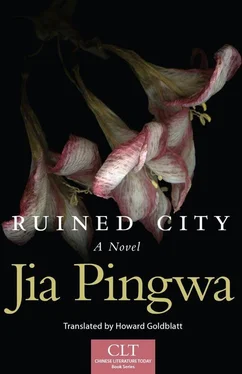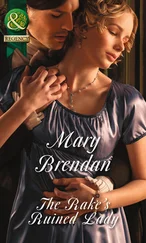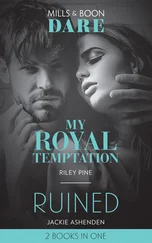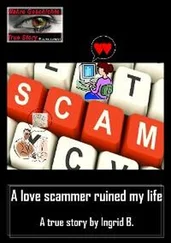This is a work of fiction; any resemblance to real people is coincidental and unintentional. Truth, however, is at the heart of the work. I await the laughter and condemnation that will follow.
— Jia Pingwa, 1993
Some works of fiction excel at capturing the defining spirit or mood of their time, informing contemporaries as well as later generations of what it was like to live then, transcending aesthetic qualities to erect a mirror for society to view itself. Jia Pingwa’s Ruined City ( Feidu , 1993) ought to have been one of those, a literary snapshot of urban life in the early years following the culturally sterile and politically savage Cultural Revolution (1966–1976). But it wasn’t — it was banned by government censors almost immediately after it came out, a ban that remained in effect for seventeen years. The reported offense was lurid sexual content. The bleak tone, the skewed relationships among characters, and a negative image of public officials and of society in general probably played a role in the decision to keep the book out of readers’ hands, but it was mainly about the sex. It would be naïve to assume that, as a result, the novel went unread in China over all those years, for copies were smuggled into the country, usually from Hong Kong; more to the point, dozens of pirated versions made it, however briefly, into bookstores and private homes. Nonetheless, Ruined City could not be openly sold and read in China for nearly two decades.
In 1997, however, four years after its aborted domestic appearance, a French translation, La capital dechué , was published and was awarded the Prix Femina. Six years later, Jia was honored in France by becoming a Chevalier in the Ordre des Artes et des Lettres. The Chinese censors, we must assume, were both shocked and appalled. That did not, however, change their minds. In the early twenty-first century, rumors circulated that, given the evolving state of morality and a popular acceptance of sexual content in literature, the ban would be lifted. A government official squelched that idea: “ Feidu has not been unbanned,” he wrote. “Outside claims that Feidu will be republished in 2004 are pure hype.” 1
. . .
Jia Pingwa was born in 1952 in the city of Xi’an, the site of perhaps the most significant archaeological discovery in China: the Terracotta Warriors. For many centuries, this Shaanxi city was the imperial capital of several dynasties, and it prides itself on being home to many of the country’s most prized cultural relics and sites, including the famed Bell and Drum Towers and the Giant Wild Goose Pagoda. Jia began writing in 1973, beginning with short stories, both for adults and for children, and essays. In the decades since, he has published a vast number of stories and novellas, plus more than a dozen novels, of which only a few have been translated into foreign languages. He is among China’s most popular, and most controversial, novelists, a man of diverse interests and talents. A calligrapher, a fortuneteller, and a musicologist, in literary terms he is first and foremost a storyteller, one who finds much of his inspiration in the countryside, a writer who is culturally tied to the ancient traditions of China and does not shy away from dark descriptions when they seem warranted.
Yiyan Wang, Jia’s literary biographer, has characterized his early writing as literary nativism, fiction that emerges from the soil and from the people who tend it. Set mainly in the impoverished mountain villages of northern Shaanxi province, these novels from the late 1980s and early 1990s were widely popular among readers, to whom Jia offered, in Wang’s words, “an enticing story told in a lucid narrative language that is rich in local flavor.” 2They were less popular among critics, who either sought more sophistication in contemporary writing or were uncomfortable with literature that cast the heart of China in a dark and unforgiving light.
Much has changed in the two decades since the first appearance of Ruined City . Its author is now celebrated as one of the country’s best-known and best-loved cultural figures, heralded by readers and critics alike; there is even an exhibition hall and museum in Xi’an devoted to Jia’s art and archival material. The ban on Ruined City was officially lifted in 2009, and sales of the book were brisk. Four years later, the prestigious People’s Literature Publishing House in Beijing produced a handsome box set of four of Jia’s novels: Fuzao (Turbulence, 1988; winner of the Mobil Oil Pegasus Prize), Feidu, Qin Qiang (Northern Opera, 2005; winner of the prestigious Hongloumeng Prize), and Gulu (Ancient Kiln, 2009). Though Jia has hinted at an imminent abandonment of the writing life, he continues to publish big, popular novels.
. . .
Ruined City is a brick of a novel, occupying nearly 500 pages of tightly packed Chinese characters (more than 400,000 of them) with indifferent punctuation, divided into neither chapters nor, for the most part, paragraphs. The absence of white space on the page can be daunting. For this translation, no chapter breaks were added, but paragraph breaks were inserted, especially for dialogue. The author approved the change.
Jia Pingwa writes in a semiclassical yet conversational and highly accessible style, paying little attention to nuanced verbiage or sophisticated narrative devices. There is an absence of irony and a paucity of humor, though it is present here and there, perhaps unintentionally. A repetitive use of terms and descriptions lends a slightly old-fashioned but not unpleasant feel for a Chinese reader, even now.
Some critics and scholars argue that, as Jia is well steeped in traditional literature, he set out to write a modern-day Golden Lotus ( Jin Ping Mei ), the Qing dynasty erotic novel. I have my doubts, for his descriptions of sex function as an indication of decadence, not as a quest for secret pleasures, as is the case in the classical novel. Sex is indeed a vital component of Jia’s narrative, and is described in graphic terms, which is rare in mainstream Chinese fiction, especially in an atmosphere of lingering prudery and enforced modesty. His descriptions are, in fact, over the top, in places borderline absurd. He is said to have undertaken the descriptions of sexual activity by watching pornographic videos. One critic has commented that he either watched too few of them or understood too little. 3
This leads to one of the most widely discussed aspects of Ruined City , the use of a series of blocks ☐☐ ☐☐ ☐☐ followed by parenthetical notes that the author has deleted a number of characters/words during or following sex scenes. It has been called a gimmick by some, and has caused consternation over the missed descriptions by others. Jia himself had this to say about the technique: “When I was writing about sex, I wrote out a little bit, but then I didn’t write any more, because I had to consider the national conditions, you know, so I thought I’d just write a little bit and that would be enough. And then I replaced the portion I didn’t write with these boxes. When I handed the manuscript to the publisher later on, they deleted additional sections. So the number of characters listed in parenthesis as having been deleted is actually no longer very accurate.” 4
That could very well be the case. There is, however, another possible interpretation. Likely expecting that his new novel would be banned, in whole or in part, because of the descriptions of sexual desire and activity, Jia created his own excisions, either to foil the censors’ anticipated action or as a parody, a mockery, of the process itself. I find this reading no less satisfactory than the author’s explanation, essentially because the excisions follow, not replace, scenes of graphic sex and could hardly have added anything of substance or interest.
Читать дальше


![Matthew Vincent - [you] Ruined It for Everyone!](/books/216429/matthew-vincent-you-ruined-it-for-everyone-thumb.webp)









